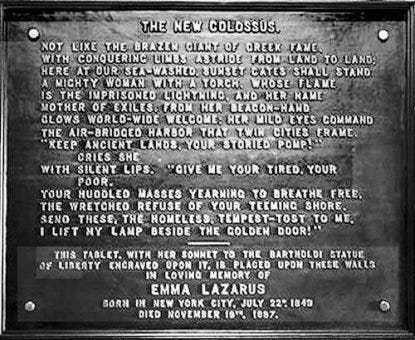An Ode to the Unhyphenated American (Part 3)
A breakdown of Stephen Wolfe's speech at the New Christendom Press Conference
Part one of this series is here:
The video of Stephen Wolfe’s full remarks is here:
In essence, America, according to the conservative historian, has overcome the dominance of the white Protestant male. As we've slowly extended rights to non-whites and non-males. I guess that's what their history kind of covers up and, in fact, that’s what it says. The overarching theme is the American Founding issued a promise and the white male fulfilled it… Fulfilling the promise of the Founding is simply the positive way of saying that white males overcame themselves. Most conservatives will simply pick a recent year from which to command history and say, “Stop! Stop progressing!”
How ironic that Wolfe makes this complaint when the previous section of his speech could be seen as an attempt to “command history” and say, “Stop! Stop progressing on immigration!” This statement on progress is an argument he also made in his book,1 one of many false dichotomies deployed to bolster his position. “Progress” is not a monolith that we must accept or deny wholesale, and reasonable people can evaluate the merits of individual propositions. Rhetorically turning his audience against “progress” will get them to abandon critical reasoning and falsely equivocate disparate policies; this allows him to lump objectively good progress that has a Scriptural basis, ethnic impartiality in particular, in with the most hot-button culture-war issues of our day.
I would counter the framing that “white males overcame themselves” with one I believe to be far more accurate: Without Western Christianity there would have been no English Common Law, Reformation or Enlightenment. These four forces resulted in the 19th-century English-speaking world becoming the first people to finally break free of certain historic evils, most notably the practice of slavery. Western civilization progressed to a point where we were able to overcome institutionalized practices that stem from humanity’s collective sin-nature. Wolfe is point-blank arguing for white people in America to have a “bounded people and place,” literally their own living space. He is making an appeal to return to some of these evils.
Again, you take upon yourself the burden of your ancestors’ promise of equality and freedom and you fulfill it by overcoming and villainizing yourself on behalf of all. You become the sacrificial hero, resulting in your displacement—a deracinated heart or rootlessness and the loss of self-respect and a self-affirming people of your own. So multiculturalism is animated by what I want to call a sort of social pathology. It is pathology because multiculturalism is demonstrably bad for the majority by every measure and by everyday experience. And yet, it remains in the US, and especially among the majorities of European countries, the central theme of policy and political rhetoric. What’s incredible about this and what's so weird about it all is that even liberal academics… have shown conclusively that multiculturalism undermines social trust.
One half of my ancestors came from Ireland in the early-19th century, while the other came from multiple locations (including William Ripley’s racially disfavored Sicily), through Ellis Island, in the early-20th century. Therefore, I am fully descended from the targets of the same types of American Protestant nativism that Wolfe would have me participate in. In 1854, the year that the Know-Nothing party rode populist fear of multiculturalism into a brief position of power, the United States saw more immigration, relative to its population, than any time before or since. First-generation immigrants made up 14.5 percent of the total population that year, and most arriving were unskilled laborers escaping famine in Ireland and massive unemployment in Germany.2 They spread so far throughout the nation that most white Americans today are at least partially descended from them.
There is no collective Anglo-Saxon consciousness for me to return to—two centuries of mass European immigration into the United States has resulted in the creation of the world’s first propositional ἔθνος (ethnos). My ethnic heritage is an invitation inscribed on a plaque in the Statue of Liberty, calling all “blood” to a “soil” where we attempt to live out the promise that “all men are created equal.” I refuse to abandon that for a call that, while slightly more eloquent, is no different than one would hear from an Exalted Cyclops in a local Klan meeting. We can have honest conversations about curbing illegal immigration and promoting legal immigration without entreating white people to adopt an ahistorical, cobbled-together collective consciousness. 21st-century white Americans are living proof that the promise is strong enough to overcome the initial phase of multicultural social distrust.
On average, hyphenated Americans appear to get about half of their attitudes towards social trust from the land that comes before the hyphen, persisting even to the fourth generation. That's how far they’ve studied this… There is every reason to believe that the importation of tens of millions through the southern border will create a socioeconomic underclass that will, over time, shape our institutions into those of their ancestral lands—the same institutions they're fleeing from—that is into ethnic privileging, corruption, procedural dysfunction, and most importantly, the utter failure to serve the actual common good.
This is the exact same argument made against Irish and German immigrants who settled into their own neighborhoods at the outskirts of metropolises in Antebellum America and within them at the turn of the 20th century. Historian Tyler Arbinder, writing on how immigrants outnumbered natives in many major American cities in the 1850s, including New York, Chicago and Cincinnatti, notes that, in an 1855 newspaper article, the Unitarian preacher Theodore Parker referred to Massachusetts as a new “County Cork” and Boston as “the Dublin of America.”3
There’s a goal to this entire section by Wolfe, in which he speaks of ethnic minorities supposedly creating secondary economies, that of convincing a room full of white men that they should create their own ethnically segregated economy—a key proposition of the Christian Nationalist movement, though often not expressed in such naked, ethno-nationalist terms. Immigrant economies in America have always been integrated into the fabric of our nation, or completely subsumed, within several generations, and there’s no reason to believe that it will be any different this time. Wolfe’s claim that “perfunctory licensing and certification… meaningless and dangerous credentialism, class-based politicking, and the weaponization of the legal system” comes from immigrants is flat-out false. These things are primarily emanating from our most prestigious institutions, largely managed by members of the very privileged demographic Wolfe calls “Old Stock America.” To make matters worse, rather than principled opposition to such things and making an effort to uphold the American promise, Wolfe would rather have his own, exclusively white community receive their cut of the exclusionary action.
You see a stranger cross by you, don’t you know you acknowledge Him, especially in the South. What Edmund Burke once called the “decent drapery of life that beautify and soften society” will be dissolved, making the public a space of cold and gray utility. What was once the predicted consequence of capitalism will actually be the result of multiculturalism—the eroding of that cultural practice which you still see in places in the country, mainly in cities.
This statement rings incredibly hollow to me. In my experience, some of the most persistently pleasant strangers I’ve come across in the South are immigrants, and the ones who avoid eye contact, more often than not, are white transplants from major cities. A few years ago, I wrote about this “city attitude” (that I grew up around in 1980s Los Angeles) invading Cary, North Carolina, very near where Wolfe lives. One of my good friends in Cary is a first-generation Indian immigrant, who came over on H1-B and is now a naturalized citizen. I have far more of a connection and social trust with him than I did with the white “coastal elites” that flooded our suburb over the last five years we lived there. I believe that’s partly because my friend and I share the ἔθνος of the propositional nation and the American dream—we’re both people who have worked ourselves into a much more comfortable lifestyle than the one we grew up in. Wolfe would have us destroy that type of beneficial multi-generational cultural progress, which moves us in the direction of the propositional final nation (Revelation 7:9-10), in favor of a regressive, fake “white” ethnicity. He can pound sand, as far as I’m concerned.
Next Wolfe will continue his re-purposing of traditional Nativist arguments to claim that we must preserve the “Western” genetic makeup of the West, lest we see our nations economically suffer, and that we must avoid the urge for “ethno-masochism.” Both are claims I disproved in my rebuttal to his book.
To be continued…
Stephen Wolfe, The Case for Christian Nationalism (Moscow, Idaho: Canon Press, 2022), 436.
Tyler Anbinder, Nativism and Slavery: The Northern Know Nothings and the Politics of the 1850’s (New York: Oxford University Press, 1992), 3–4.
Arbinder, 8.




